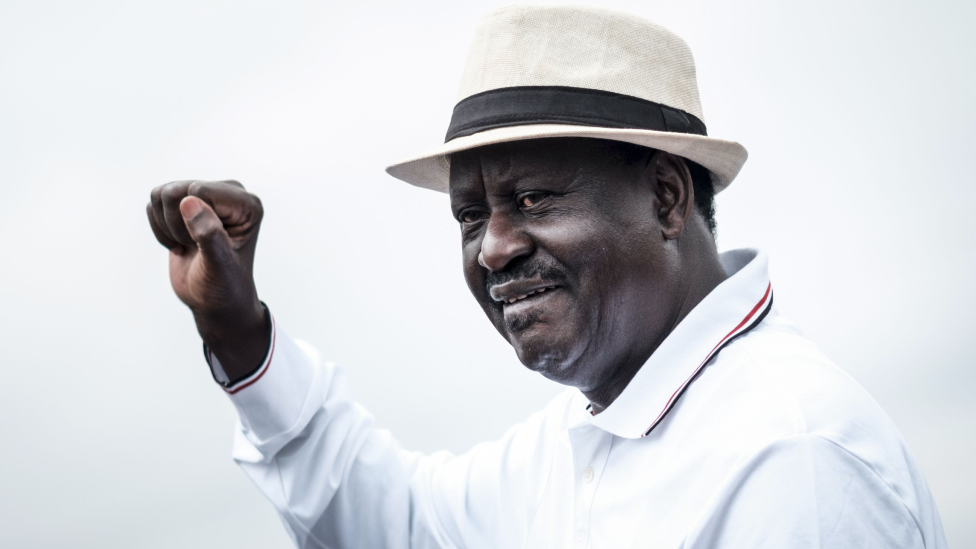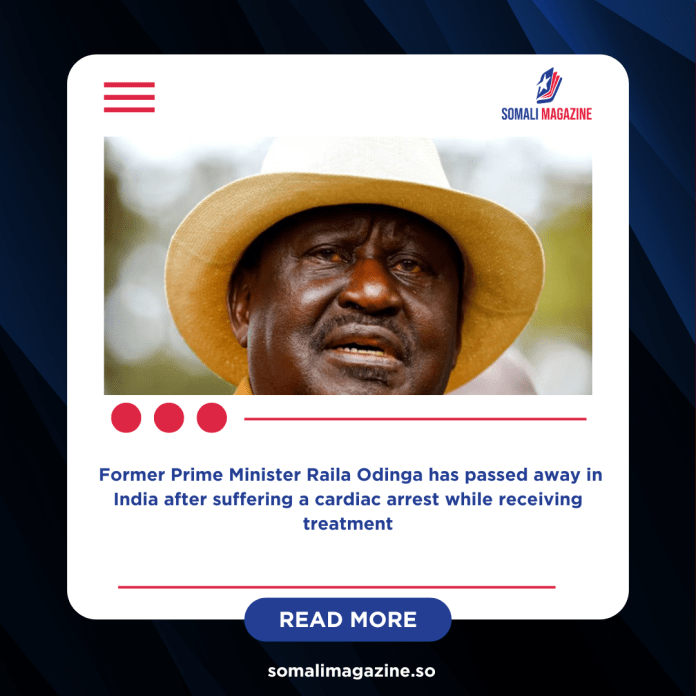Facebook Twitter (X) Instagram Somali Magazine - People's Magazine
A source in Raila Odinga’s office told Reuters on Wednesday that the former Kenyan Prime Minister has died at the age of 80. The office did not provide further details. Earlier, the Indian newspaper Mathrubhumi reported that Odinga, who had been receiving medical treatment in Kochi, India, suffered a cardiac arrest. He was rushed to a hospital, where he was later pronounced dead.
Raila Odinga was a towering figure in Kenya’s political life. Though he ran for president five times, he never won. His campaigns, however, left a deep mark on Kenya’s democracy. Two of his presidential contests ended in deep national divisions and violence, and his challenges to official results often spurred wide debates about electoral fairness and governance.
Despite never holding the presidency, Odinga’s greatest impact may lie in his work as a democracy advocate and reformer. In the early 1990s, he was a driving force behind the repeal of the one-party system, helping usher in multiparty democracy in Kenya in 1991. His pressure and activism also played a key role in Kenya’s adoption of a new constitution in 2010. These changes reshaped Kenya’s political structure and paved the way for greater accountability.
One of the most dramatic chapters of Odinga’s life came after the 2007 presidential election, which was marred by accusations of vote rigging. His supporters joined mass protests, and the country plunged into violence. The unrest left about 1,300 people dead and led to the displacement of hundreds of thousands. In the crisis that followed, Odinga emerged as a leader of opposition voices demanding justice, investigations, and reforms. Over time, he engaged in negotiations and mediated agreements that brought uneasy peace but forever changed Kenya’s political landscape.
Even in defeat, Odinga was never quieted. He remained a central figure in Kenyan politics for decades, often acting as the symbolic leader of opposition against what he saw as unfair practices and entrenched power. His persistence drew both admiration and criticism, but he never ceased calling for fair elections, constitutional rights, and inclusion of marginalized communities.
He also had periods of power-sharing and bridging roles. Following political turmoil around the 2007–2008 crisis, Odinga entered into a coalition government as Prime Minister. That position gave him formal influence, which he used to advance reform agendas and to hold parts of the government more accountable. Yet he always maintained his identity as a challenger to the status quo.
Throughout his long career, Odinga walked a difficult tightrope: balancing protest and engagement, pushing for change while negotiating with entrenched elites. His life was marked by setbacks, controversies, and resilience. Even when electoral victories escaped him, his role as a moral and political compass shaped Kenya’s democratic trajectory.
Raila Odinga’s contributions to Kenya’s political and constitutional life will be remembered for years to come. His passing closes a chapter in Kenyan history — one dominated by struggle, reform, and a vision of a more open society.

